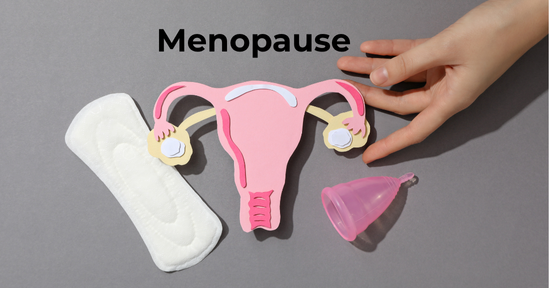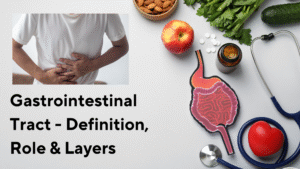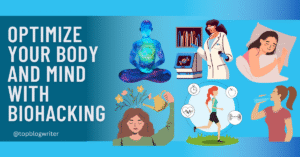A woman who is not having her period for a long period is called menopause.
The age at which menopause happens with most women is between 45 and 55 years, but some women can face menopause after 35 years of age or later.
Menopause can happen due to hormonal issues, autoimmune disorders, chromosomal abnormalities, or surgeries that require the removal of ovaries.
A woman with menopause issues cannot conceive or plan a baby due to no capability of producing eggs from ovaries for fertilization. But, you can use protection or take the advise of your doctor before assuring that you’re postmenopausal.
You need to know that women have eggs in their ovaries that help generate female sex hormones, such as progesterone and estrogen, also known as steroid hormones that regulate the menstrual cycle and take care of the egg’s release or ovulation process. The process in which ovaries don’t support the egg release for a full year is called menopause.
What are the Symptoms of Menopause
The symptoms of menopause can vary from person to person. Some people don’t have periods for two months, but after that, they experience periods regularly. So, it is difficult to know the exact symptoms of menopause. However, symptoms that you can face with your hormone changes are as follows:
- Night Sweats
- Vaginal Dryness
- Hot Flashes
- Mood Changes
- Anxiety or Depression
- Irregular Periods
- Brain Fog
- Sleeping Problems
Three Different Stages of Menopause
The three stages of menopause are Perimenopause, Postmenopause, and Menopause. Night sweats and hot flashes are examples of perimenopause. During this phase, you can experience very light or extremely heavy menstrual flow because your periods are irregular for more than months. Postmenopause happens in woman in their 40s because their ovaries generate less estrogen, and that further leads to low mood, hot flashes, and irregular periods.
Perimenopause is when you don’t have your periods for years before menopause. On the other hand, menopause is when you don’t experience your periods or menses for more than 6 months or a year.
Natural Reasons for Menopause Include
Removal of one or both ovaries or surgical menopause is the main cause of menopause. Similarly, some women get chemotherapeutic drugs, and that’s why their ovaries fail before the age of 40. That is also called premature ovarian failure or primary ovarian insufficiency. This stage happens when ovaries don’t release eggs or make the required amounts of the hormone estrogen, which further results in infertility.
What are the Situations You Can Face After Menopause?
Women in the 51 age group can experience menopause anytime because it is a natural phase of your life that occurs when you cross your 40s or reach your 50s. For some, it is the best thing because you are not going to have a menstrual cycle every month and get rid of sanitary periods, excessive pain, and vaginal bleeding. However, there are some risks that you can face after menopause, such as cardiovascular disease, changes in vaginal health, osteoporosis, depression, anxiety, and another kind of mental illness.
Osteoporosis
Osteoporosis is a situation when you aren’t aware of your symptoms because you don’t know what’s happening with your body except for the disease that is shrinking your bones. It gives you feel like a fracture or breakage of a bone, and these fractures can occur in the bones of the wrist, spine, vertebrae, and hip. It is a silent case that decreases estrogen in your body and stops your period, especially when you cross the age of 60.
How to Treat Osteoporosis
- You need to take vitamin D supplements and calcium supplements.
- You can take foods that are rich in calcium and vitamin D.
- Don’t smoke or drink.
- You can do strength-building activities, go to the gym, and do some aerobic exercise.
- Consult with your doctor for bone density scans, mammograms, pap smears, cancer screenings, immunizations, gynecologic screenings, pelvic exams, and therapies like estrogen or any other.
Cardiovascular Disease
Most death cases reported in the USA regarding women were based in the USA. It happens due to cardiovascular disease that includes various types of disorders, such as cerebrovascular disease, coronary heart disease, rheumatic heart disease, peripheral arterial disease, and congenital heart disease that suffers most women followed by menopause with risk factors, like blood clots, type 2 diabetes, obesity, and more.
Depression and Anxiety
Perimenopause is the phase when you get your periods heavier, shorter, lighter, longer, or infrequent menstrual cycle. These are the hormones that also work with your brain chemicals and serotonin levels that can increase anxiety, irritability, and sadness when the levels get down and give you pleasure and well-being when the serotonin levels get increased. Failure of progesterone and estrogen levels can make you sad and play with your mood swings to make you depressive, mainly when you have experienced depression in the past.
Urinary Tract Infections
Urinary tract infections happen after menopause because estrogen levels decrease or the level of estrogen reduces when you get treatments like ovary removal surgery or treatments like cancer. UTIs are caused by poor hygiene and when bacteria or microbes enter the urinary tract. To avoid this, you must stay hydrated, maintain hygiene in the washroom, and get antibiotic treatment from a specialized healthcare provider.
What to Do After Menopause
As a woman, you need calcium intake for skin health, bone health, and conditions like obesity, cancer, hypertension, etc. You need at least 1,200 mg of calcium daily when you don’t have periods. Before menopause, you can take around 1,000 mg of calcium with vitamin D.
Apart from that, you should exercise to avoid weight gain after menopause. Regular exercise can help you maintain your bones and heart health. It can also protect you from diseases like diabetes, high blood pressure, insomnia, osteoporosis, weak muscles, chronic back pain, etc. You can start with jogging, walking, and other aerobic activities that are good for people with menopause. You can check with your doctor before starting aerobic activities. But, if your doctor doesn’t have any issue with your exercise, you can easy to improve your mood and release happy hormones to stay away from stress, depression, and anxiety.
Don’t opt for hormone replacement therapy, as alternative options always come with lots of risks that can destroy your health than before. The best part is to exercise or walk for an hour or half an hour. You can prefer a low-sugar and healthy diet to decrease the risk of heart disease.


